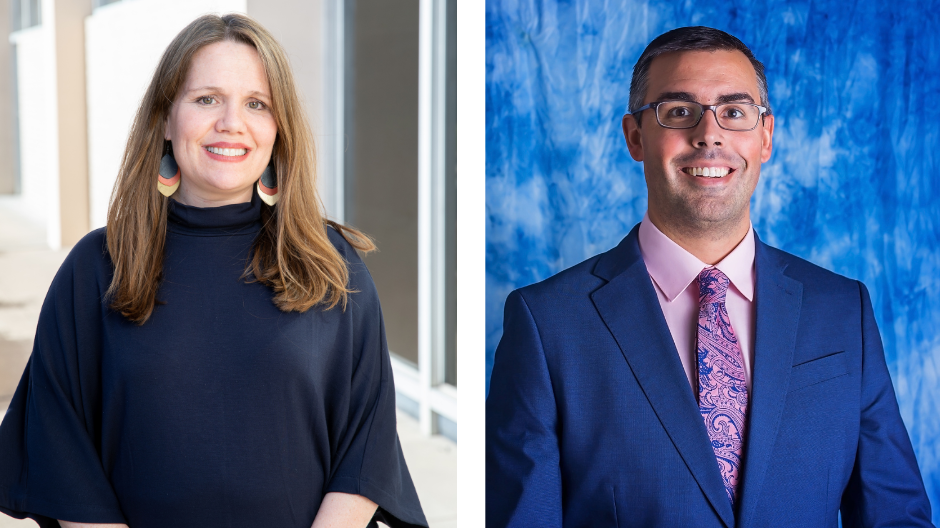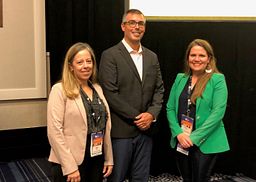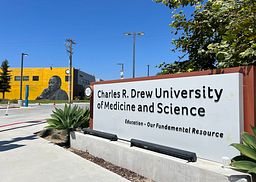2022-2023 AAPA-PAEA Research Fellows Focus on PA Well-Being and Leadership Development

PAEA is pleased to announce the selection of Bethany Grubb, MPAS, MPH, PA-C, assistant professor at the University of Texas Southwestern, and Chris Roman, DMS, PA-C, associate professor at Butler University, as the 2022–2023 PAEA Research Fellows. They were selected for this honor after undergoing a rigorous, blinded review. We would like to thank the PAEA Research Mission Advancement Commission (RMAC) and our volunteer peer reviewers for their help in the application process.
The AAPA-PAEA Research Fellowship offers promising PA researchers the opportunity to contribute to the growing body of PA scholarship, broaden their knowledge of PA education and the profession, and expand their professional networks.
Both of the fellows’ work is focused on professional development. Dr. Roman is seeking to support PA and PA student mental health and address concerns about licensure and stigma within and outside the profession. Professor Grubb is also seeking to develop PA students and practitioners by expanding health care executive, clinical, and academic leadership roles at the local, state, and federal levels.
In his study, “PA Access to Provider Health Programs and Safe Haven Non-Reporting,” Dr. Roman is investigating the availability of information about provider health programs (PHPs) to support PAs experiencing impairment due to substance use or a physical or mental health issue. Although these programs exist, information is not readily available through state licensing agencies or constituent groups, and this lack of information is a significant barrier to PAs getting the help they need.
This project will also look at the availability of safe haven non-reporting, which allows clinicians to get help without involving the licensing board, as long as patient harm has not resulted from the impairment. Having this outlet is not only important to practicing PAs, but also to students as they assimilate into the profession. Lack of support can influence help-seeking behaviors of both students and practicing PAs. Sharing these resources is one step towards decreasing that stigma and providing genuine support.
Professor Grubb is currently pursuing a PhD in Global Leadership and Change and was motivated by her doctoral work to study PA leadership in her project, “Competencies, Styles, and Strategies of PA Leadership in Healthcare Executive, Clinical, and Academic Roles.” In the competitive medical landscape in which PAs provide care and educate students, their involvement in decision-making roles is critical.
She and her team plan to conduct a study identifying quantitative and qualitative measures to characterize leadership within the PA profession, including the most common styles, strategies, and key factors affecting PAs in leadership in healthcare executive, clinical, and academic roles. The goal is to provide a more comprehensive understanding of PA leaders in all sectors to promote future leadership development.
Both fellows emphasize the importance of research to the PA profession. Grubb asserts that PAs must continue to quantitatively and qualitatively provide evidence of the value of care that PAs consistently provide, highlighting quality, access, and patient satisfaction. She quotes Jonas Salk. “He said, ‘You never have an idea of what you might accomplish. All that you do is pursue a question and see where it leads.”
Grubb adds that “Curiosity is about 50% of the formula in pursuing research, and I think for those of us early in our research careers, humility is at least the next 30%. Being willing to ask for help in formulating a question or asking someone you respect to be a mentor helps achieve success.”
Dr. Roman also encourages his colleagues not to be intimidated to apply or be afraid to fail even though his first fellowship application was unsuccessful. He used the lessons learned to advance from his first application — a huge, multi-phase behemoth with a vague timeline — to a more discrete research plan with a clear timeline that demonstrated to the selection committee that his Fellowship project was both important and feasible.
PAEA welcomes our new fellows to the growing Fellowship cohort and broader PA research network and is excited to see what their research produces.
To hear about the research our Fellows have done, learn about how you can be a part of the next cohort, and network with experienced researchers, join us at the two AAPA-PAEA Research Fellowship sessions at the 2022 PAEA Education Forum. We will delve into the latest research from our outgoing 2021–2022 fellows and introduce our incoming 2022–2023 fellows along with their new projects.
If you are interested in other research funding, the Don Pedersen Research Grants Program and the Faculty Generated Research Grant are currently accepting applications. If you have questions about our grant programs or are interested in mentorship, contact PAEA Research at Research@PAEAonline.org or call 703-651-8540.




